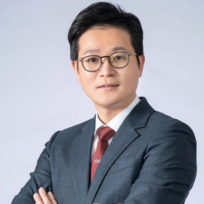Events
Nov 06, 2024
Seminar (2024-11-06)
School of Biomedical Sciences cordially invites you to join the following seminar:
Speaker: Professor Keehoon Jung, Associate Professor, Department of Anatomy and Cell Biology, Department of Biomedical Sciences, Seoul National University College of Medicine, Seoul, Korea
Talk Title: Tumor-associated monocytes and neutrophils: Targets for immunotherapy?
Date: 6 November 2024 (Wednesday)
Time: 10:30 am – 11:30 am
Venue: SR609, 6/F, William M.W. Mong Block, 21 Sassoon Road
Host: Professor Rio Sugimura
Biography

Prof. Keehoon Jung is an Associate Professor at Seoul National University College of Medicine. He earned both his BS and PhD degrees at KAIST in Daejeon, Korea. During his PhD training in Dr. Gou Young Koh's laboratory at KAIST, he focused on vascular biology and innate immunity. He later moved to the U.S. as a postdoctoral fellow in Dr. Andy Yun's lab at Harvard Medical School, where he developed cutting-edge techniques for real-time intravital microscopy to study in vivo immune cell trafficking. He then joined Drs. Rakesh Jain and Dai Fukumura's laboratory to further investigate the roles of immune cells in the tumor microenvironment. In 2018, he returned to Seoul to establish his own laboratory, where his research focuses on identifying promising targets in tumor immunity to develop innovative immunotherapy approaches for malignancies.
Abstract
Our goal is to better understand the immune microenvironment in cancer using advanced methodologies such as in vivo imaging and single-cell genomics. Specifically, we aim to uncover the vast potential of myeloid populations in cancer, an emerging area of study. Real-time intravital multiphoton microscopy allows us to visualize dynamic cell migration and intercellular communication. Through single-cell RNA sequencing in both preclinical and clinical specimens, we reveal the heterogeneity of myeloid cells. This approach provides new opportunities for cancer immunotherapy by identifying promising targets in tumor immunity. Notably, we identified immunosuppressive monocytes and neutrophils as key contributors to tumor resistance against conventional therapies. Furthermore, we elucidated molecular mechanisms underlying treatment resistance, highlighting potential immunomodulatory strategies to enhance long-term clinical outcomes.
ALL ARE WELCOME.

